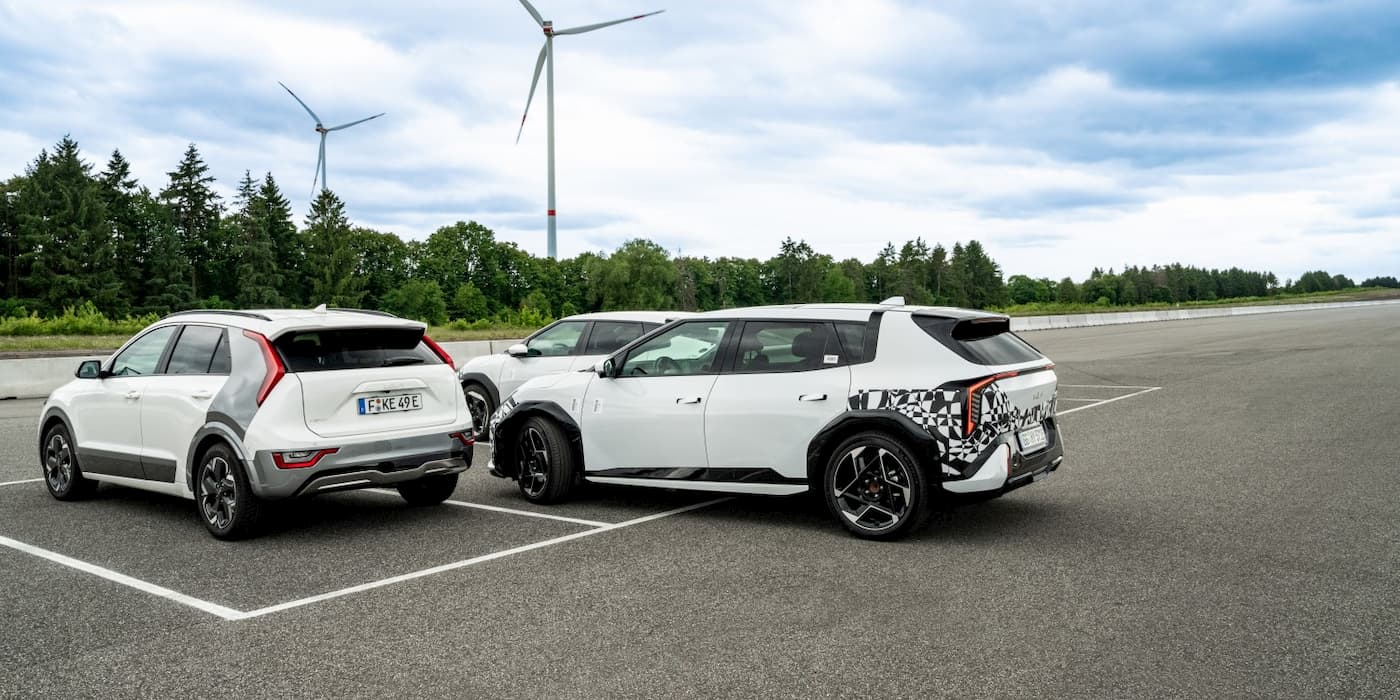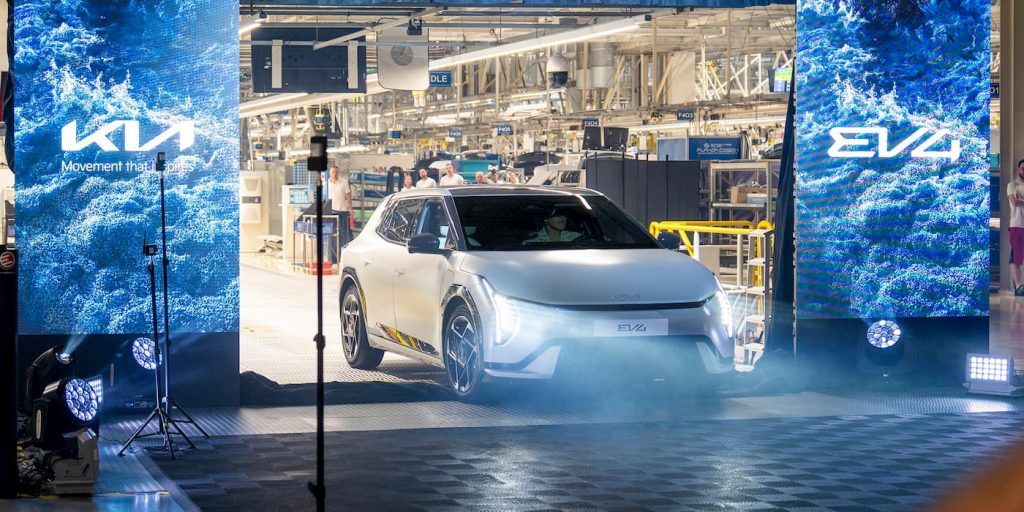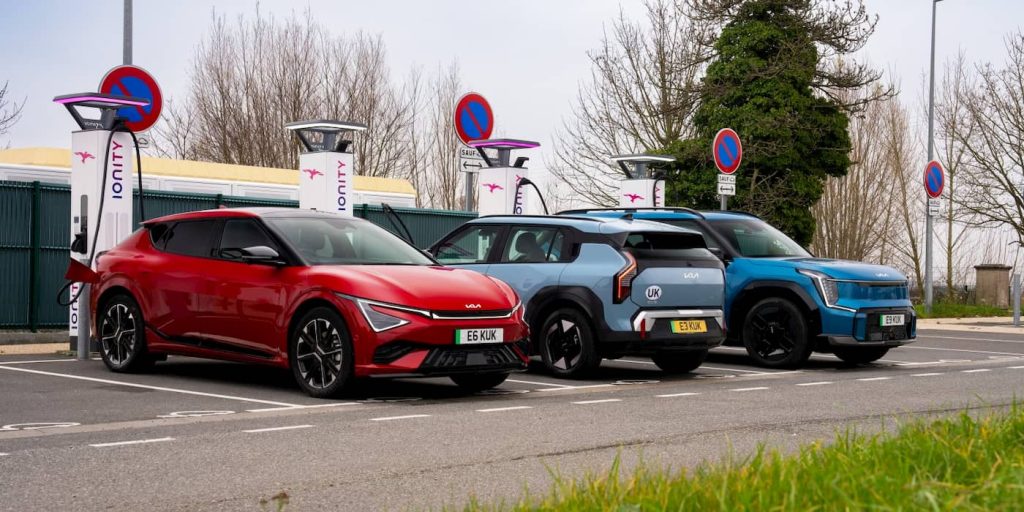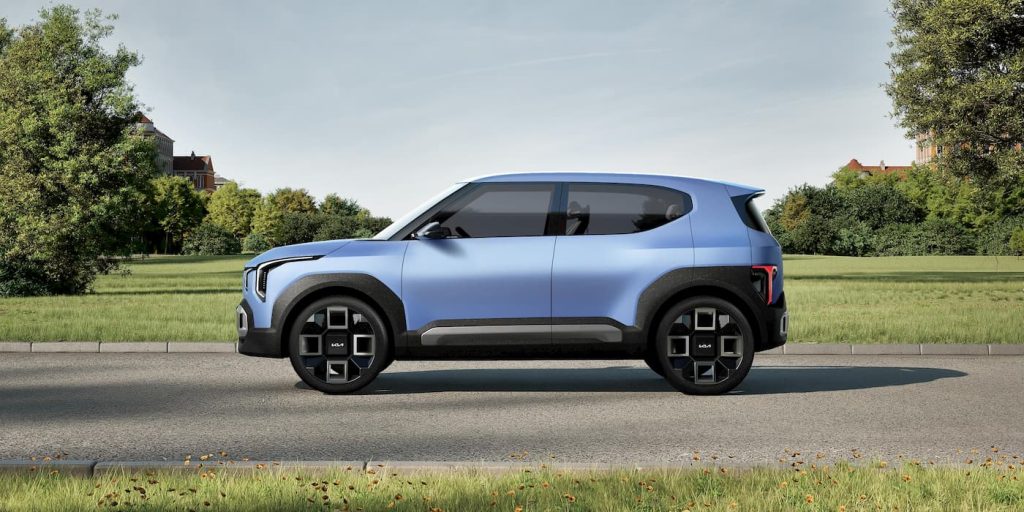
As it gears up to unleash an “avalanche” of new EVs, a top Kia official is warning against changing policies. Not only would it be a setback for the industry, but it would also cost the company a fortune.
Kia is warning against changing policies for EVs
Unlike some automakers (looking at you, Mercedes-Benz), Kia believes it’s best for Europe to stick to its plan to ban the sale of new cars with internal combustion engines (ICE) by 2035.
“We have an avalanche of electric cars coming,” Kia’s top executive in Europe, Marc Hedrich, said (via Automotive News). Kia’s European boss warned that if the company were to suddenly stop launching EVs, “it would cost us a Fortune.”
Hedrich’s comments come as pressure builds from other automakers, especially in Germany, to reverse the ban on new ICE cars.
Meanwhile, just a week ago, Kia’s first European-made electric vehicle, the EV4, rolled off the assembly line. The EV4 is Kia’s first electric hatchback. Unlike the sedan model, which is made in South Korea, the hatch variant is assembled at Kia’s Zilina plant in Slovakia.

Kia invested over 100 million euros ($125 million) to upgrade the facility for EV production. Next year, Kia will begin building the EV2, its new entry-level electric car that will sit below the EV3.
Hedrich’s warning is a stark contrast to Mercedes-Benz CEO Ola Kallenius, who criticized the EU’s policy earlier this month.

Kallenius said that the policy would handicap European brands, which are already struggling to compete with Chinese automakers. Instead, he is calling for tax incentives and cheaper power prices to support the transition to EVs.
When asked about Kallenius’ comments, Hedrich took a slight jap, saying, “That is the same guy who a few years ago promised his company would only sell EVs in Europe by 2030.”

EU President Ursula von der Leyen is set to meet with several top European automotive executives to devise a plan to ensure the sector remains competitive.
Kia does not support a delay, Hedrich made clear, with several EVs set to arrive over the next few months. After launching the EV3 and EV9 in 2024, Kia opened orders for the EV4 (hatchback and sedan variants) earlier this year. The company’s EV5 SUV is set to launch later this year, followed by the smaller EV2. Both the EV2 and EV4 will be assembled in Slovakia to expedite deliveries.
Electrek’s Take
The EV3 is already the best-selling electric vehicle among retail buyers in the UK and sixth in Europe through the first half of the year.
With the EV4 and EV5 joining the lineup this year, followed by the EV2 in 2026, why would Kia support going backwards? And that’s not to mention Kia’s new PBV electric van business, which kicked off with the PV5 this year.
Even investing in new plug-in hybrid (PHEV) and extended-range electric vehicle (EREV) technology at this point seems a little late to the party.
As Hedrich put it, “PHEVs are definitely a transition technology which is highly dependent on local government rules.” Since the rules vary by region, “it’s extremely difficult to build a business case” around them, he added.
Kia’s European boss believes the EU’s ban on ICE vehicles could help German automakers. However, more competitive models are needed to boost demand, he predicted.
Do you agree with Kia? Chinese brands like BYD are quickly winning over market share with lower-cost, often more advanced EVs. And European automakers are almost entirely dependent on Korean or Chinese battery makers. If automakers continue delaying the inevitable transition to EVs, they will only fall further behind in the global market.
FTC: We use income earning auto affiliate links. More.













